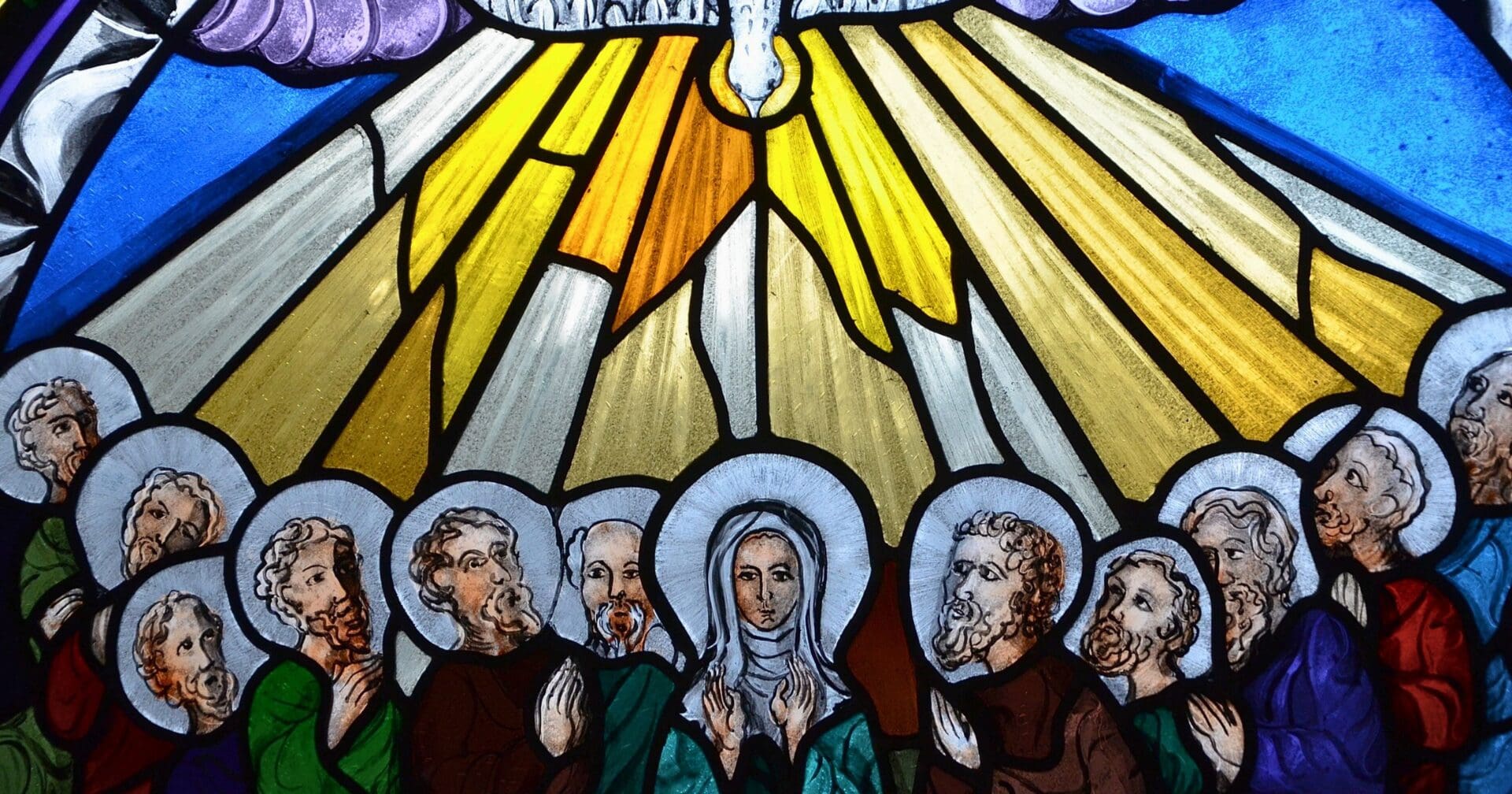
Pentecost Sunday is one of the most ancient feasts of the Church, celebrated early enough to be mentioned in the Acts of the Apostles (20:16) and St. Paul’s First Letter to the Corinthians (16:8). It is the 50th day after Easter (if we count both Easter and Pentecost), and it supplants the Jewish feast of Pentecost, which took place 50 days after the Passover and which celebrated the sealing of the Old Covenant on Mount Sinai.
The Acts of the Apostles recounts the story of the original Pentecost as well (Acts 2). Jews from all over were gathered in Jerusalem to celebrate the Jewish feast. On that Sunday, ten days after our Lord’s Ascension, the Apostles and the Blessed Virgin Mary were gathered in the Upper Room, where they had seen Christ after His Resurrection:
And suddenly there came a sound from heaven, as of a mighty wind coming, and it filled the whole house where they were sitting. And there appeared to them parted tongues as it were of fire, and it sat upon every one of them: And they were all filled with the Holy Ghost, and they began to speak with divers tongues, according as the Holy Ghost gave them to speak. [Acts 2:2-4]
Christ had promised His Apostles that He would sent His Holy Spirit, and, on Pentecost, they were granted the gifts of the Spirit. The Apostles began to preach the Gospel in all of the languages that the Jews who were gathered there spoke, and about 3,000 people were converted and baptized that day.
That is why Pentecost is often called “the birthday of the Church.” On this day, with the descent of the Holy Spirit, Christ’s mission is completed, and the New Covenant is inaugurated. It’s interesting to note that St. Peter, the first pope, was already the leader and spokesman for the Apostles on Pentecost Sunday (see Acts 2:14ff).
In years past, Pentecost was celebrated with greater solemnity than it is today. In fact, the entire period between Easter and Pentecost Sunday was known as Pentecost (and it still is called Pentecost in the Eastern churches, both Catholic and Orthodox). During those 50 days, both fasting and kneeling were strictly forbidden, because this period was supposed to give us a foretaste of the life of Heaven. In more recent times, parishes celebrated the approach of Pentecost with the public recitation of the Novena to the Holy Ghost.
Editorial credit: piosi / Shutterstock.com
The post The Solemnity of Pentecost appeared first on uCatholic.
Daily Reading
Memorial of Saints Joachim and Anne, Parents of the Blessed Virgin Mary
Readings for the Memorial of Saints Joachim and Anne, parents of the Blessed Virgin Mary Reading 1 JER 3:14-17 Return, rebellious children, says the LORD, for I am your Master;…
Daily Meditation
How to Be Good Soil
Click here for daily readings Jesus is the divine Sower who sows the seed of his word in the community of followers that he calls apart from the world. The…




